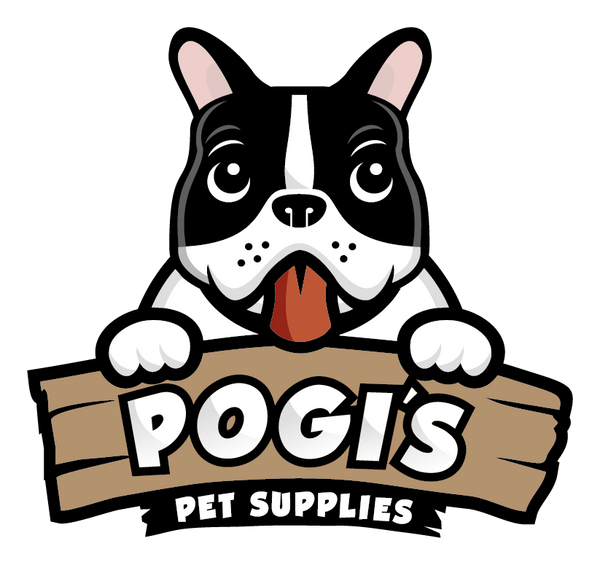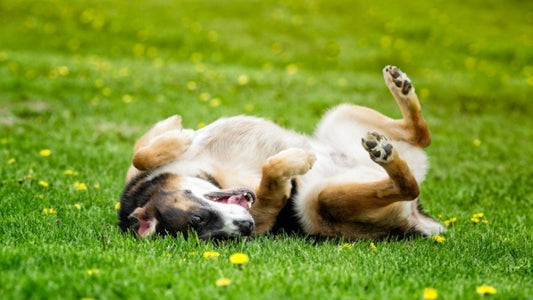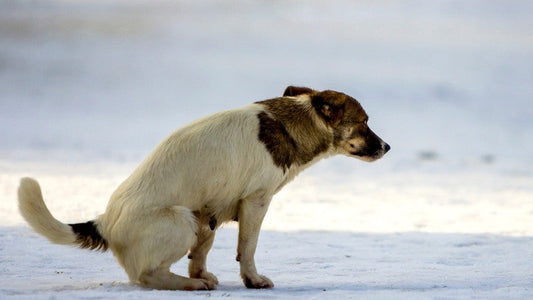With sustainability on everyone’s mind, many dog owners wonder if their pup’s poop could play a second role in the backyard. After all, cow manure and chicken manure are prized in gardens, so why not dog waste? The idea sounds resourceful, but the reality is a lot messier.
Dog feces do contain nutrients like nitrogen that plants need, yet they also carry harmful bacteria and parasites that can sit in soil, contaminate water sources, and pose serious health risks to humans, children, and other animals. That’s one reason why the EPWN points out that the nearly 10 million tons of pet waste produced in the U.S. every year create a significant environmental challenge.
So, can dog poop be used as fertilizer, or is it better to dispose of it another way? Let’s get into the facts before you throw anything into your garden soil.
Health and Safety Risks of Using Dog Poop as Fertilizer

Dangerous Pathogens in Dog Waste
Dog poop is often mistaken for a natural fertilizer, but it doesn’t behave like the cow or chicken manure used on farms.
Dogs eat a protein-rich diet, and that makes their waste acidic and loaded with harmful bacteria and parasites. E. coli, Salmonella, Campylobacter, roundworms, hookworms, and Giardia are all common in dog feces, and they can survive in garden soil for months after the waste breaks down.
The risks extend far beyond the patch of ground where the waste sits. Rain can wash pathogens from dog feces into storm drains and eventually into rivers or lakes, contaminating water sources and spreading disease.
A child playing in the yard, or vegetables pulled from a backyard garden, could unknowingly be exposed to these harmful microbes.
There’s also the problem of nutrients. Cow manure works as a good fertilizer because it adds balance to the soil. Dog poop, on the other hand, has excess nitrogen and salts that can burn plants, weaken root systems, and reduce soil health over time. Instead of helping your lawn or vegetable garden thrive, it leaves the soil struggling to support healthy growth.
EPA Classification of Dog Waste
Calling dog poop fertilizer gives it too much credit. Fertilizer is something carefully designed to feed plants, while dog waste is simply the by-product of a pup’s digestive system. One improves soil health; the other often leaves behind harmful bacteria and foul odors.
The Environmental Protection Agency takes this distinction seriously, classifying pet waste as a pollutant rather than a fertilizer. When it isn’t picked up and treated properly, dog waste becomes part of stormwater runoff, carrying dangerous microbes into rivers, lakes, and other water sources. Research shows that even a single gram of dog feces can hold up to 23 million fecal coliform bacteria. That’s enough to spread illness among humans, animals, and even contaminate fish populations.
For dog owners hoping to nurture a healthy backyard or vegetable garden, it’s important to realize that leaving poop behind does more harm than good.
Risks for Gardens and Lawns
A backyard may seem like the perfect place to “recycle” dog poop, but the risks stack up quickly once it touches soil meant for plants.
Vegetables and fruits grown in contaminated garden soil can absorb or carry traces of harmful bacteria and parasites. Eating produce exposed to dog feces raises the chance of serious illness, especially when the crops are eaten raw.
Lawns aren’t spared either. Even after the poop is picked up, residues can remain in the grass, leaving behind microorganisms that are invisible to the eye. Children playing barefoot, or pets rolling around in the yard, can easily come into contact with these contaminants. Over time, this makes the lawn less of a safe retreat and more of a potential source of infection.
What looks like a harmless shortcut to fertilizing the garden can actually end up spreading disease and damaging the soil’s balance instead of enriching it.
Composting Dog Poop: Is It Ever Safe?
Why Backyard Compost Isn’t Enough

A steaming compost pile might look like it’s handling everything you throw in, but appearances can be deceiving when it comes to dog poop. Most backyard systems never reach the consistent heat needed to neutralize what’s hiding inside. Pathogens in dog waste require temperatures of at least 130 to 145°F held steady for several days, and many home piles hover well below that.
As a result, organisms like roundworms can survive long after the compost looks “finished,” waiting in the soil to infect plants, pets, or people. Even standard compost bins, while good at keeping smells under control, do little to eliminate harmful microbes.
The end product may look like rich, crumbly compost, but in reality, it can carry the same contaminants as untreated waste, making it unsafe for use in gardens, lawns, or anywhere children and animals spend time.
Controlled High-Heat Composting Systems
Not all composting is created equal. While a backyard pile falls short, specialized systems are designed to reach the kind of high heat that destroys harmful bacteria and parasites in dog feces. These setups maintain consistent temperatures well above what most home bins achieve, allowing waste to break down safely without leaving behind dangerous pathogens.
Even with that level of control, the compost produced from dog poop comes with limits. Experts recommend using it only for non-edible plants such as ornamental shrubs, decorative flowers, or landscaping areas where people and pets are unlikely to come in direct contact with the soil. Using it in a vegetable garden risks transferring contaminants to food crops, which defeats the purpose of “natural” fertilizing.
Some dog owners turn to pet waste digesters small in-ground systems that function like a miniature septic tank. Products like the Doggie Dooley, for example, break down poop using enzymes and water while keeping it contained underground. These tools give a more practical way to manage waste safely in the backyard without polluting soil or water sources.
Professional Composting or Waste Removal Services
Dealing with dog poop doesn’t always have to be a backyard project. Some communities offer programs that collect pet waste and process it in industrial composting facilities, where temperatures are carefully maintained high enough to kill off harmful bacteria and parasites. Unlike home compost bins, these large-scale systems are monitored closely to ensure the waste breaks down safely.
The drawback is availability. Very few municipalities invest in these programs because of the cost and strict requirements involved. Still, in places where they are offered, they give dog owners a responsible and environmentally friendly way to keep waste out of landfills and local water sources.
For most households, partnering with a professional service ends up being the simplest and safest option. It eliminates the risks of DIY composting while ensuring that waste is handled properly from start to finish.
Safer Alternatives to Dog Poop Fertilizer

Traditional Plant Compost and Commercial Fertilizers
If your goal is to give plants a healthy boost, the answer is already in your kitchen and backyard. Food scraps like vegetable peels, coffee grounds, grass clippings, and dry leaves break down into compost that’s rich in nutrients and completely safe for garden soil.
Unlike dog waste, this type of compost strengthens plants without leaving behind harmful bacteria or parasites.
For those who prefer a ready-to-use option, commercial fertilizers offer another reliable route. These products are carefully regulated, tested for safety, and free from the pathogens found in animal feces. Whether you’re growing a vegetable garden or maintaining a lawn, they provide a balanced mix of nitrogen, phosphorus, and other nutrients that plants can absorb easily.
Leaning on plant-based compost or commercial fertilizer can get you the benefits of natural fertilizing without the risks tied to dog poop. It’s a way to support both your garden’s health and your family’s safety at the same time.
Use Compostable Dog Poop Bags for Responsible Disposal
Picking up after your pup doesn’t have to come at the cost of the environment. Compostable dog poop bags give owners a way to clean up responsibly while avoiding the plastic that lingers in landfills for decades. Pogi’s Plant-Based Compostable Poop Bags are designed to break down safely without leaving behind microplastics, making them a smarter choice for eco-conscious dog owners.
The distinction between “biodegradable” and “compostable” is important here. Biodegradable bags may still leave behind toxins or fragments, while compostable bags are tested to ensure they fully decompose under the right conditions.
Pogi’s bags carry certifications like ASTM D6400, EN 13432, and AS 5810, which confirm that the material truly returns to the earth once processed in an industrial composting facility.
Switching to compostable bags turns a daily routine into a cleaner, more sustainable practice that keeps neighborhoods fresh and reduces the impact of waste on the environment.
Dedicated Pet Waste Compost for Ornamental Plants Only
Some dog owners are determined to compost every scrap of waste, and while it isn’t recommended for food crops, it can sometimes be used cautiously in non-edible areas. When processed carefully and kept far away from vegetable gardens or water sources, composted dog poop may provide nutrients for ornamental plants, shrubs, or other landscaping.
Safety has to come first. Pathogens in dog feces don’t disappear easily, which is why gloves are essential when handling pet waste compost. Washing hands thoroughly after contact reduces the risk of spreading harmful bacteria to yourself, your pets, or your family.
Even with these precautions, the approach comes with limits. This type of compost is never a substitute for traditional garden compost or commercial fertilizer, but in decorative spaces where there’s no chance of crops or children being exposed, it offers a restricted way to reuse pet waste.
Clean Walks, Safe Gardens — and a Healthier Planet with Pogi’s
Eco-conscious pet parents often wonder if dog poop compost could be the answer for greener living. The truth is, while it sounds sustainable, it carries too many health risks to ever be safe for gardens or food crops. The smarter choice is handling waste responsibly with tools that actually protect your family and the environment.
Pogi’s Plant-Based Compostable Poop Bags are proof that small choices add up. They’re sturdy enough for everyday walks, safe for industrial composting where accepted, and designed to disappear without leaving microplastics behind. That means cleaner streets, healthier yards, and a more responsible way to care for your pup.
Ready to turn a daily chore into an eco-friendly habit? Pick up Pogi’s Compostable Poop Bags today and make every walk a step toward a cleaner planet.





